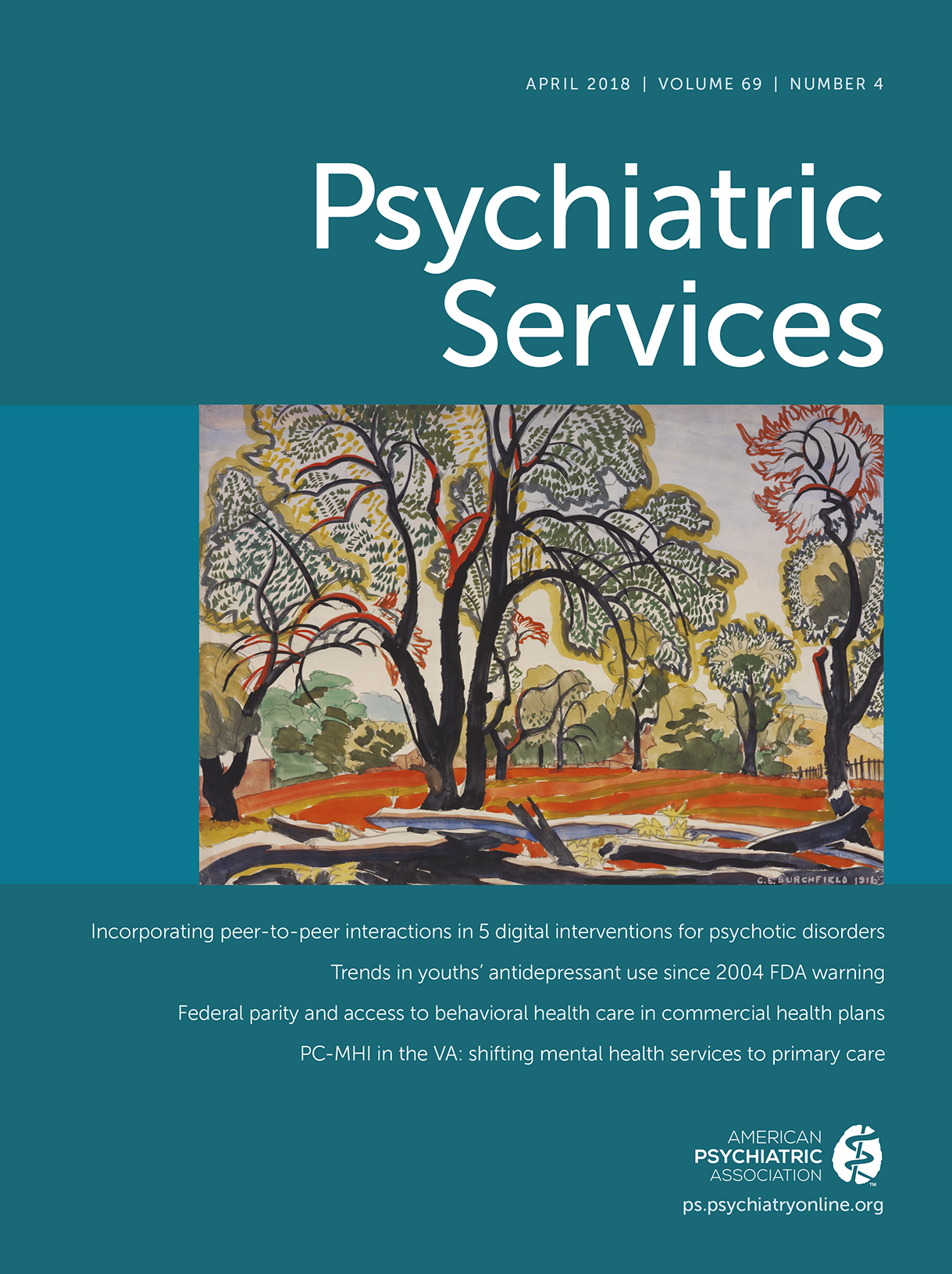IN REPLY: I understand why the proprietors of Mental Health First Aid (MHFA) might respond to my Open Forum (1). I would have hoped only that Jorm and Kitchener (2) did so with the critical eyes I was encouraging in my piece. To their credit, they have collected data reflecting past MHFA impact. They seem to use these data to revise MHFA manuals; I hope they include feedback from varied interested constituencies in revisions. I am concerned, however, when program developers equate their research with truth.
Is MHFA’s wide availability—“more than two million people have been trained” (2)—testimony to its impact or its marketing? America’s venture into substance use literacy—the DARE program (Drug Abuse Resistance Education)—was at one time in most U.S. schools as well as more than 20 countries. Despite the market penetration, research summaries have questioned the program’s benefits, with the U.S. Surgeon General placing DARE in the “ineffective primary prevention program” category (3).
Perhaps differences in the American (4) and Australian versions of MHFA led to my assessment of the program’s being DSM heavy. Section 2 of the 2013 manual I was given when completing MHFA in Chicago summarized symptoms, causes, and some epidemiology related to depression, anxiety disorders, psychosis, substance use disorders, and eating disorders. This section comprises 81 of the 132 pages of the manual.
I am glad we agree that behavioral impact is an important index of mental health literacy programs. I am less sanguine in the authors’ interpretation of the meta-analysis (5) that supports the truth about MHFA’s impact on action. Indices of behavior in the meta-analyses included “confidence to approach and help a person” and/or “intent to do so” (5). This is not synonymous with whether behavior changed.
I am pleased to see that people with lived experience are becoming accredited MHFA instructors. I was unable to determine from the manual how their lived experience is incorporated into the program. Recovery and empowerment are essential to messages of people with lived experience. The 2013 American manual limited discussion of recovery to three paragraphs. I failed to find discussion of the importance of empowerment.
I am pleased MHFA proprietors continue to update their program as feedback and data accrue. I nonetheless remain concerned about inevitable flaws that need to be recurrently reviewed as this and other mental health literacy programs move forward. My Open Forum was a call for this kind of critical examination.
1 : Beware the educational fix: limitations of efforts to promote mental health literacy. Psychiatric Services (Epub ahead of print, Nov 15, 2017). doi: 10.1176/appi.ps.201700236Google Scholar
2 : The truth about Mental Health First Aid training. Psychiatric Services 69:492, 2018Google Scholar
3 Chapter 5: prevention and intervention [box 5-2. Rating prevention programs]; in Youth Violence: A Report of the Surgeon General. Rockville, MD, US Public Health Service, 2001. https://www.ncbi.nlm.nih.gov/books/NBK44295/table/A13400/?report=objectonlyGoogle Scholar
4
5 : Mental Health First Aid is an effective public health intervention for improving knowledge, attitudes, and behaviour: a meta-analysis. International Review of Psychiatry 26:467–475, 2014Crossref, Medline, Google Scholar



